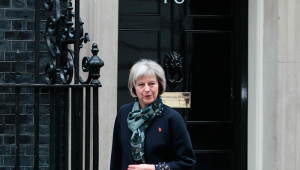
The best way to break the cycle of dependency issues and poor health outcomes isn’t more money for treatment programmes – though it’s badly needed. The starting point is creating an environment in which people thrive from the outset. Homes, schools, the local environment – or place, as most people call it.
Let’s start by working from the premise that the fundamental issue is that there hasn’t been enough funding for local communities over the past decade and a half. The current way in which we work is divisive and heaps inequalities upon inequalities.
A connection has long been made by policy and health researchers about what drives poor long-term health – housing, transport, work, personal finance, neighbourhoods and community.
We stated in our levelling-up report that local measures highlighting the social side of the government’s policy are needed – neighbourhood and public spaces that create purpose. In short, community matters.
The long view
Level Measures called for consistent, long-term funding to unlock the efficiencies that planning services over an extended timeframe can provide. We urged the formation of council-led placemaking boards with local partners and key stakeholders to provide input into strategy and delivery. And we called for a long-term view towards re-establishing ‘whole-place’ budgets as a universal standard.
Our other policy recommendation was that councils should enjoy revenue support for their neighbourhood service provision, combined with money allocated through capital pots into a single placemaking budget.
There are two other factors. Trust between levels and tiers of government has to improve. Knowledge of what local government does – and how – remains too limited in Whitehall, but trust must also be fostered between councils that share delivery responsibilities across tiers. Neither can we leave out employers or charities. We need partnership frameworks, based on long-term strategic goals that maximise local value. Work with the private and the third sectors should be relational and strategic, with priorities for residents clearly spelled out and delivered by all partners.
Commitment
Turning around a community that has experienced generations of poverty is not going to be achieved in a year or even three. There has to be a commitment to endeavours beyond funding or electoral cycles. We need to look to options for the next government. Clearly, they won’t have enough fiscal headroom to tackle this with funding. So, it’s going to be about going back to Total Place – or whatever ministers want to call it.
Any attempt to tackle inequality needs to be driven by good local data analytics – maybe with artificial intelligence, too.
But there’s something else. So many local organisations, like integrated care systems, operate with a full funding cycle but in silos. We need positive, dynamic and genuine change to get local providers working together. More than that, their goals to be focused on the people in their communities.
This needs a shift by central government and local public services. We must take advantage of the fact that there are few other alternatives. It’s about seizing the opportunity to create outcomes, not more inequalities.





















